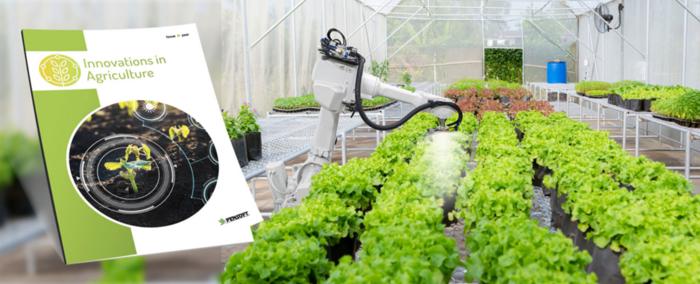Innovations in Agriculture, a peer-reviewed journal dedicated to advancing agricultural research, has partnered with Pensoft to transition to the ARPHA publishing platform. This move will enhance the journal’s publishing workflow, content visibility, and elevate the impact of their research within the global agricultural community.

Credit: Pensoft Publishers
Innovations in Agriculture, a peer-reviewed journal dedicated to advancing agricultural research, has partnered with Pensoft to transition to the ARPHA publishing platform. This move will enhance the journal’s publishing workflow, content visibility, and elevate the impact of their research within the global agricultural community.
Established in 1970, Innovations in Agriculture is committed to publishing high-quality research that addresses the critical challenges and opportunities in modern agriculture. The journal covers a wide range of topics, including agricultural technology, sustainable farming practices, crop and livestock management, and policy implications.
All the journal’s legacy papers have been successfully migrated to the ARPHA platform, and the first new issue has been published on its new ARPHA-powered website, complete with Sustainable Development Goals (SDG) tags on individual articles.
By utilising ARPHA’s white-label solution, Innovations in Agriculture will enjoy several key benefits, including a streamlined submission and review process, automated workflows, advanced authoring tools, and robust archiving and indexing.
During the journal’s launching phase, authors may benefit from a yearly quota covering the free publication of 25 standard articles (up to 20 published pages).
“We are thrilled to welcome Innovations in Agriculture to ARPHA’s family of next-generation scientific journals. ARPHA’s publishing solutions will help Innovations in Agriculture thrive and continue disseminating important research.” said Prof. Dr. Lyubomir Penev, CEO and founder of Pensoft.
***
For more information, visit the Innovations in Agriculture website.



